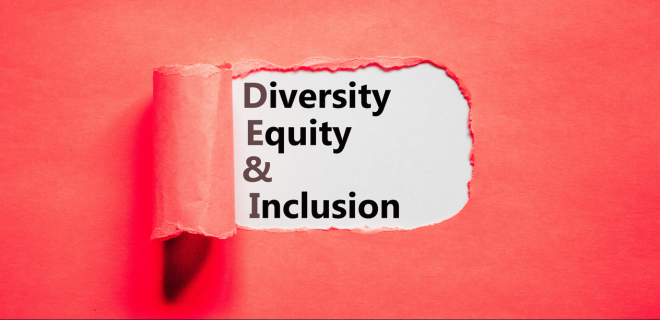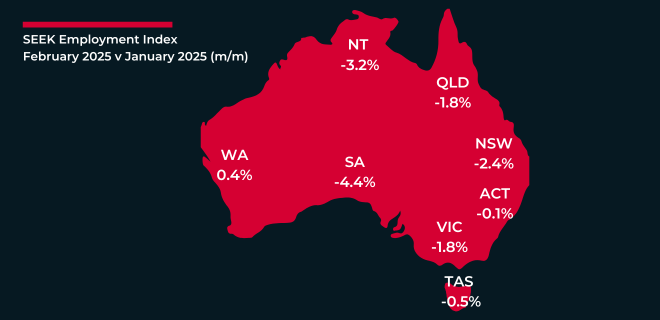The Untapped Talent Pool

With Australia currently experiencing a candidate short market, there is an underutilised talent pool that more employers should consider – employ a person with a disability.
Whilst diversity and inclusion are a growing focus for more and more organisations, the representation of people with disabilities is still disproportionately low.
Did you know that 1 in 5 people in Australia have a disability with approximately 80 per cent of disability being acquired in a person’s life?
Of the 2.1 million Australians of working age (15-64 years) who have a disability, only 47.8 per cent are employed, compared to 80 per cent of nondisabled people in the same age bracket.
“Employing a person with disability may require adjustments to the recruitment process or workplace, however some employers may not be aware of how simple and inexpensive it can be to accommodate an employee with disability,” said Kylie Heffernan, General Manager at Horner.
Disabilities are diverse in their forms and are not always visible. They can result from accidents, illness or genetic disorders, may be permanent or temporary and may have minimal or substantial impact on a person’s abilities.
The only thing that distinguishes a person with a disability is they may require some form of adaptation/adjustment to enable them to do certain things in the same way as people without a disability.
“Some employers shy away from employing a person with disability but many of these workers are talented, productive, reliable, creative and very loyal,” explains Kylie.
What does a “reasonable adjustment” mean?
According to the Australian Network of Disability (AND), a ‘reasonable adjustment’, also referred to as a workplace adjustment, is a change to a work process, practice, procedure or environment that enables an employee with disability to perform their job in a way that minimises the impact of their disability. Under the Disability Discrimination Act 1992 (DDA), employers are obligated to make adjustments to accommodate an individual’s disability, unless that adjustment would result in severe financial hardship, technical limitations or heritage considerations.
What are some examples of a “reasonable adjustment”?
Whether it is in the recruitment process or in the workplace, there are many easy and simple “reasonable adjustments” employers can make. It is better to ask the person what adjustments they actually need rather than make assumptions that can be unnecessary and/or costly.
Horner shares 10 suggestions of what “reasonable adjustments” could be:
1) Providing the opportunity at the application stage via the job advert or application form to allow candidates to request an adjustment to the recruitment process, such as bringing a support person with them or increased time for any written or reading tests
2) Taking a flexible approach to start/finish times and/or shift patterns
3) Offering a phased return to work for an employee who’s been on long-term sick leave because of their disability
4) Allowing more frequent breaks for someone with diabetes to get the right amount of food or drink throughout the day
5) Allowing the use of paid or unpaid leave for medical appointments or rehabilitation sessions
6) Moving furniture to widen traffic through areas to help people with mobility issues or replacing a desk chair with one designed for an employee who has a disability affecting their back.
7) Providing the right type of phone for an employee who uses a hearing aid.
8) Offering work either closer to home or ability to work from home
9) Offering a nearby or reserved parking space.
10) Providing a quiet space for breaks away from the main workspace.
What’s next?
To discuss any “reasonable adjustments” that can be made with your recruitment process and/or at your workplace please contact your consultant, or Kylie Heffernan, General Manager on 0409 336 418 or email horner@horner.com.au.
We’re here to help.

 Job Seekers
Job Seekers Resources
Resources Timesheets
Timesheets Submit a CV
Submit a CV Login
Login Temporary Staffing Solutions
Temporary Staffing Solutions Permanent Recruitment Solutions
Permanent Recruitment Solutions Executive Search
Executive Search Payroll Services
Payroll Services Employer Resources
Employer Resources HR Services
HR Services WHS Consulting
WHS Consulting Outplacement / Career Transition
Outplacement / Career Transition Accounting and Finance
Accounting and Finance Business Support
Business Support Community Services
Community Services Customer Service
Customer Service Engineering
Engineering Events and Exhibitions
Events and Exhibitions Government
Government Healthcare
Healthcare Labour Hire
Labour Hire Manufacturing
Manufacturing Not-for-profit
Not-for-profit Sales and Marketing
Sales and Marketing Warehousing and Logistics
Warehousing and Logistics About us
About us Meet the Team
Meet the Team Blog
Blog Community
Community Join the Team
Join the Team Candidate Timesheet
and Portal Information
Candidate Timesheet
and Portal Information Blog
Blog Join the Team
Join the Team Payroll Services
Payroll Services Timesheets
Timesheets Customer Service
Customer Service Engineering
Engineering Warehousing & Logistics
Warehousing & Logistics

